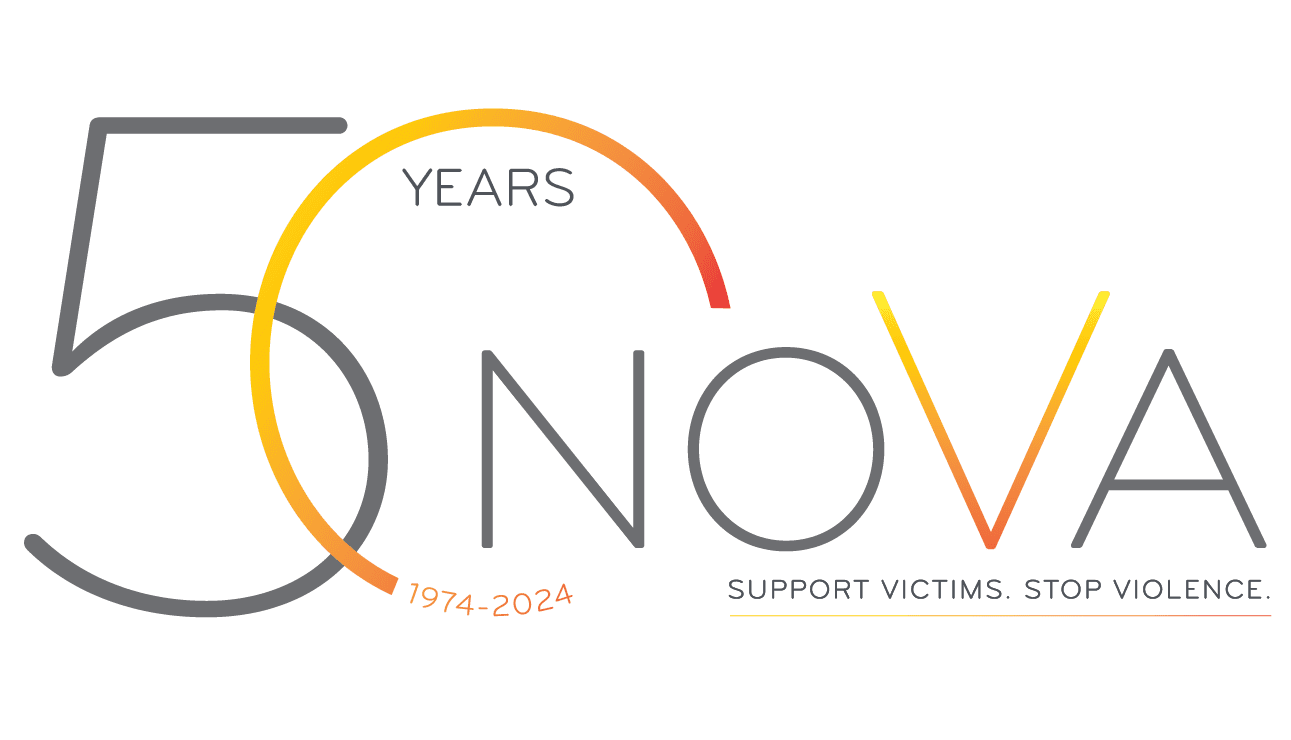Training Institute
NOVA has a team of expertly trained and experienced staff who provide a variety of high quality and practical trainings. The trainings are offered virtually and in-person, and may qualify for continuing education credits as noted in the descriptions.

Professional Development
All professional development trainings can be disseminated virtually or in-person
For additional information please contact Jamie Pfister, jamie.pfister@novabucks.org or (215) 343-6543 Ext. 6706Mandated Reporting of Suspected Child Abuse: Knowing Your Role in the Protection of Our Children
This training is a research and practice based curriculum with proven successful outcomes in participants. The goal of this training is to increase the likelihood of mandated reporters making a report of suspected incidents of child abuse to child protective services or law enforcement including incidents of serious physical injury, serious mental injury, sexual abuse or exploitation, imminent risk, and serious physical neglect. The training is listed and approved by the Department of Human Services in accordance with Act 31 of 2014, and approved by the Pennsylvania Department of Education in accordance with Act 126 of the Pennsylvania Public School Code.
Stewards of Children
Trauma 101: What is Trauma? Moving Towards Becoming Trauma Aware
Vicarious Trauma: Helping People; Helping People
Suicide Prevention: Finding Hope in Difficult Times
Suicide continues to be a vast public health concern in our communities. However, it is preventable and it requires that everyone in our communities do our part. This includes knowing the basics about how to identify and talk to someone who may be contemplating suicide and how to connect them with help. This training is designed to help individuals recognize the warning signs of suicide in others and in themselves, effectively engage with a person in distress by speaking up and listening, and how to connect the person with professional help.
Warning Signs of Sexual Abuse among People with IDD and autism
CSEC 101: Commercial Sexual Exploitation of Children
Sexual abuse and exploitation of children threaten the victims’ of their childhood and can irrevocably interfere with the emotional and physical well-being of an individual. Ensuring that all children thrive and grow without being impacted by sexual trauma or exploitation is a societal issue. Having a better understanding of the realities of child sex trafficking will not only help keep the children and families in our communities safe, but will help be an effective advocate for victims and survivors of commercial sexual exploitation. This training will help identify risk factors and indicators of commercial sexual exploitation of children in our communities.
Human Trafficking: Risk Indicators and Vulnerable Populations
Sexual exploitation and trafficking is happening in our communities. Knowing and understanding the risk indicators can increase our ability to decrease or eliminate human trafficking. The goal of this comprehensive training is to enhance the knowledge and understanding of how sexual exploitation and human trafficking influences and impacts individuals and vulnerable populations in our communities.
Abuse Knows No Age: Abuse among the Elder Population
Elder abuse is any intentional act, or failure to act, by a caregiver or another person in a relationship that causes or creates a risk of harm to an older adult. It is important to identify the risks for this vulnerable population, in order to keep communities safe from harm. This training is helpful to understand the different types of abuse that this population may endure by reviewing indicators and risk factors for abuse in the elderly population.
Neurobiology of Trauma: Understanding the "Unthinking" Response
In order to fully help individuals heal from trauma, we have to understand what’s happening in the traumatized brain. During this course learners will receive a brief overview of the neurobiology of trauma along with the cognitive and physiological symptoms that a person may endure who have experienced a traumatic event(s). Knowing what happens to the brain, will give us a better understanding of how to therapeutically intervene with a survivor of abuse or assault.
Victim Services: How NOVA can help
Get to know our agency! NOVA is the comprehensive victim service agency that serves Bucks County. This presentation is meant to give our partners in the community an overview of the services NOVA provides and the impact NOVA has on preventing violence and victimization in our society. Support Victims. Stop Violence.
Community/Caregiver
All programs can be disseminated virtually or in-person. All of our Community and Caregiver Programs support NOVA’s student prevention education topics.
For additional information please contact Jamie Pfister, jamie.pfister@novabucks.org or (215) 343-6543 Ext. 6706Bridging the Gap: Building Body Autonomy
Talking about safe and appropriate touches provides insight into building healthy body boundaries. Caregivers will learn additional ways to talk about personal safety with the children in their lives to help promote increased self-advocacy for that individual(s).
Bridging the Gap: Foundations for Kindness in our Homes & Communities
This program will help build skills for caregivers and community members to cultivate respectful, kind and courageous children. When we create families and communities with a strong foundation of kindness and empathy, we can create a more inclusive world. Caregivers will better understand their role in building that foundation.
Bridging the Gap: iSmart Connections
While technology is ever changing, this presentation provides families and community members information on building the foundations for staying safe online. Online boundaries and respectful decision making among families promotes a digital space that is positive in nature to create important social connections.
Smarter Parents, Safer Kids
This interactive workshop helps parents learn about healthy sexual development, how to talk to their kids about sexual abuse, and how to keep them safe. The Smart Parents program helps adult caregivers tackle tough conversations with their children, along with empowerment and support.
Post-Secondary
All programs can be disseminated virtually or in-person.
For additional information please contact Jamie Pfister, jamie.pfister@novabucks.org or (215) 343-6543 Ext. 6706Indicators and Risk Factor for Sexual Violence
Unhealthy Relationships: Preventing Sexual Exploitation
Young people are at a particularly higher risk of being involved in unhealthy relationships. By equipping vulnerable youth with skills and knowledge for healthy interactions with others, this can lead to a more positive lifestyle. This training will help prevent young adults from future victimization and offer safe and appropriate interventions for survivors of sexual assault.
Sextortion Awareness
Understanding Sexual Violence
Professional Engagement
NOVA offers expertise in various aspects of Victim Service topics. Many of our associates and stakeholders have presented professional workshops related to decreasing violence in our communities and preventing future victimization.
Please contact Jamie Pfister, Training Coordinator, at NOVA’s Training Institute for additional information regarding potential speaking engagements at jamie.pfister@novabucks.org or (215) 343-6543 Ext. 6706
